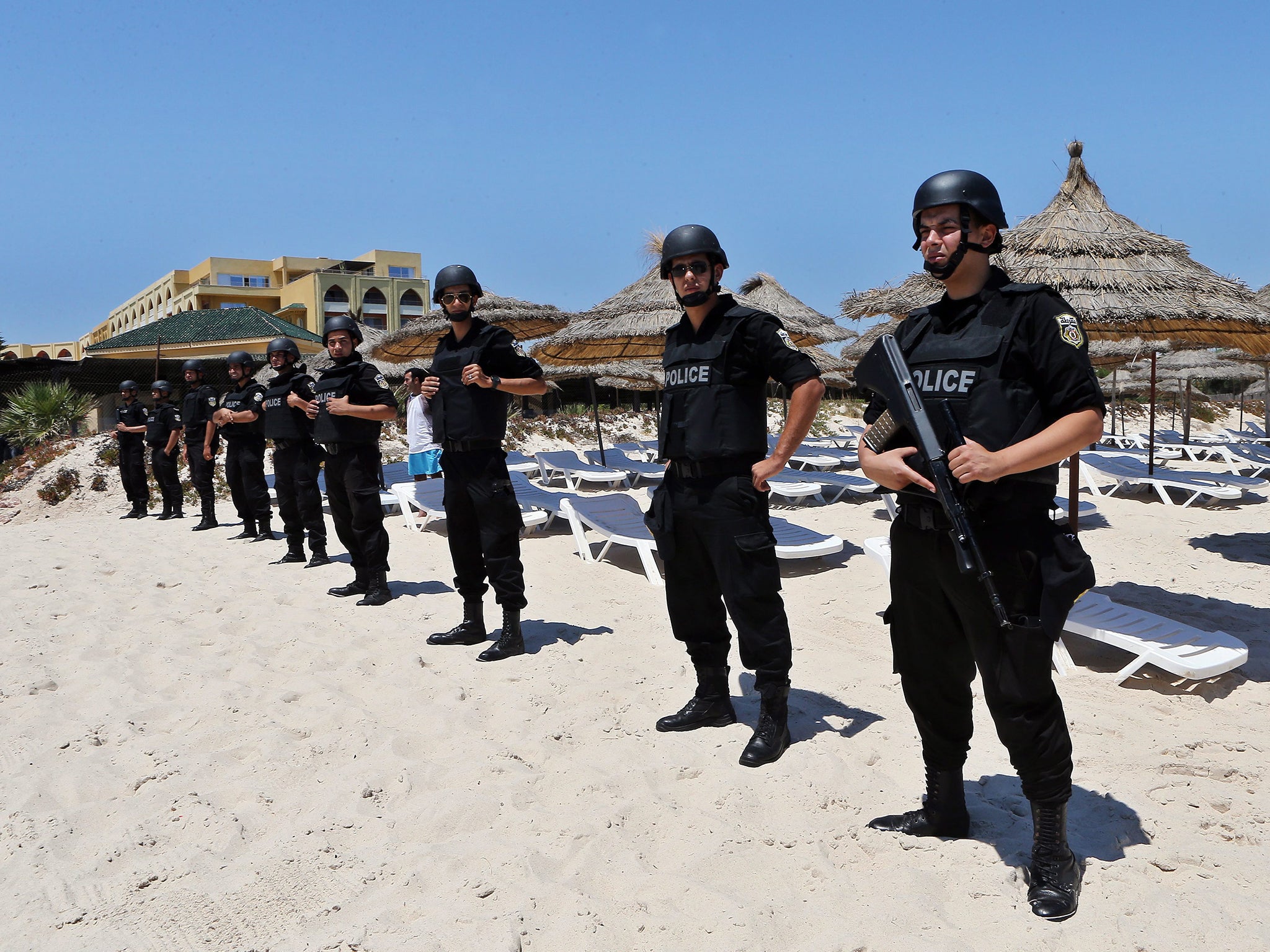Tunisia attack: The West's response to the atrocity in Sousse is in alarming disarray
Could the UK have reacted more constructively by helping beef up security in Tunisia?

Your support helps us to tell the story
From reproductive rights to climate change to Big Tech, The Independent is on the ground when the story is developing. Whether it's investigating the financials of Elon Musk's pro-Trump PAC or producing our latest documentary, 'The A Word', which shines a light on the American women fighting for reproductive rights, we know how important it is to parse out the facts from the messaging.
At such a critical moment in US history, we need reporters on the ground. Your donation allows us to keep sending journalists to speak to both sides of the story.
The Independent is trusted by Americans across the entire political spectrum. And unlike many other quality news outlets, we choose not to lock Americans out of our reporting and analysis with paywalls. We believe quality journalism should be available to everyone, paid for by those who can afford it.
Your support makes all the difference.In recent days, British holidaymakers have been arriving home on hastily arranged flights from Tunisia. The UK Government suddenly told British tourists to leave last week, claiming that a further terrorist attack is “highly likely” after 38 people died in Sousse at the end of June. Thirty of the victims were British.
New intelligence came in less than 24 hours before the decision was made, according to some sources. It also appears to have been influenced by the assumption that some of the gunman’s accomplices are still at large. But Western governments are split on the nature of the threat and how to deal with it.
According to the State Department website, the US has issued no specific warnings since the attack. On Saturday afternoon, a map on the website of the French foreign ministry ranked the terrorist threat in Tunisia below that in Libya, Algeria and parts of Egypt. A spokesman confirmed that France had not called on its nationals to leave Tunisia, reiterating advice that travellers should be “particularly vigilant”.
France was the colonial power in Tunisia and is no stranger to terrorist attacks: three French tourists died in an assault on the Bardo museum in Tunis in March. Several European governments joined France in declining to follow the UK’s example; Ireland and Denmark advised their nationals to leave shortly after the British government did so.
When I asked the Foreign Office whether it believed British holidaymakers were more likely to be targeted, a spokeswoman told me: “We only issue travel advice to British nationals and we judge that the level of risk to Britons is unacceptably high.” She said it was up to other countries to make decisions about threats to their citizens.
More than 3,000 Britons have had to cut short their trips and some are not happy about it. Neither is the Tunisian government, which said the UK’s stance was “what the terrorists want”. Around 400,000 people work in the tourist industry and the mass departure is a huge blow to the economy.
Two weeks ago, the Government said it had no evidence that British tourists had been deliberately targeted. The FCO spokeswoman told me that the “intelligence and threat picture” had developed considerably since then. But the high proportion of British casualties in Sousse could be a reflection of nothing more than the fact that tour companies make block bookings; I once stayed in a hotel in the town where almost everyone else was Russian.
Governments have a duty to protect their citizens but the disarray among Western countries is alarming. It makes me wonder whether the UK could have reacted more constructively, perhaps diverting a portion of the international-development budget to beef up Tunisian security. It’s heartbreaking that this beautiful country, which needs our support, is currently a no-go area for British travellers.
Join our commenting forum
Join thought-provoking conversations, follow other Independent readers and see their replies
Comments